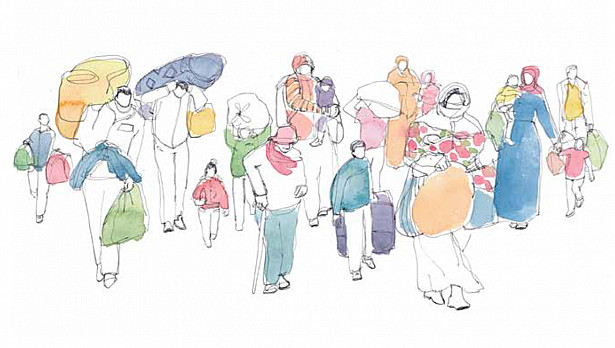The world changes with every generation because every generation brings something new to the world; it leaves it somewhat different from the way it found it. This is why the world changes with each passing generation. As a result, every generation discovers a world that differs from the one that came before it.
Humans are always motivated to be happier, live longer, be smarter, and control their bodies. But, in each era, some things worry more than others, and with it comes a sense that the present understandings regarding human nature and how human life is organized are inadequate.
In the 21st century, humans are breaking out of their roles as passive observers of life becoming manipulators.
Humanity has, in effect, reached a power over nature unimagined by previous generations. In so doing, human beings have achieved certain confidence in most areas of their lives while simultaneously developing anemic new ways of thinking.
Linear thinking is seriously questioned, as are efforts to explain the world through dualities (good versus evil, white versus black, innocence versus experience) and cause and effect. Most people today do not expect narratives to have solutions; they relate, instead, to the multiple endings of “Wayne’s World,” the open-ended possibilities of serial cartoons.”
Nobody believes that all innovation is progress, but experience has shown that if something can be done, it will be done or at least tried. Our task, then, is not to pretend that change can be stopped but to understand the meaning these changes have.
Choices are not “either or.” It is not about welcoming 21st-century understandings uncritically and with open hands or rejecting every 21st-century conception lock, stock, and barrel.
Our task is to translate our present understandings and the three thousand years of accumulated experience of the Jewish people into values and language future generations can use to steer them in this new world they are venturing into.
Only half of the nation’s children can expect to grow up in an intact two-parent household. And chances are that those born in houses where each of the parents grew up in a different way of looking at life will develop a weak, if not altogether confused, approach to understanding the world and the lives they live.
On the other hand, out-of-sync ideologies, more concerned about self-preservation than the well-being and development of the human beings they are supposed to serve, are more a liability than an asset.
Suffice to take a look at the minority appeal. Each of these models has to understand that they have run their course in terms of effective, wholesome responses to the challenges confronting the generations that live and will live in the 21st century.
21st-century Jewish education, can’t keep prioritizing the teaching of “synagogue skills” for the young and a largely “tribal” identity based on periodic Jewish observances.
The function of Jewish educators is not to teach Judaism but to teach human beings from the vantage point of Judaism.
The basis of a Jewish education is a general consciousness of the values which govern human life
If there is a heritage in Judaism, it testifies that the Jewish people are heirs to a long tradition where Judaism is all about human life: its quality and development.
Jewish learning must be appropriate to the ways of Jewish existence in the modern world. It cannot be based upon a negation of modernity and a nostalgic return to the conventional. Nor can it be about the survival of forms that no longer respond to the priorities of a world that changes faster than human thought matures.
Jews have kept Judaism alive and vibrant by constantly reshaping traditions in ways consonant with their needs. What determined the “Jewishness” of their formulations was not a set of predetermined criteria, but the “workability” of such formulations for the Jewish people.”
No culture can exist without an embedded process of regeneration and reorientation.


